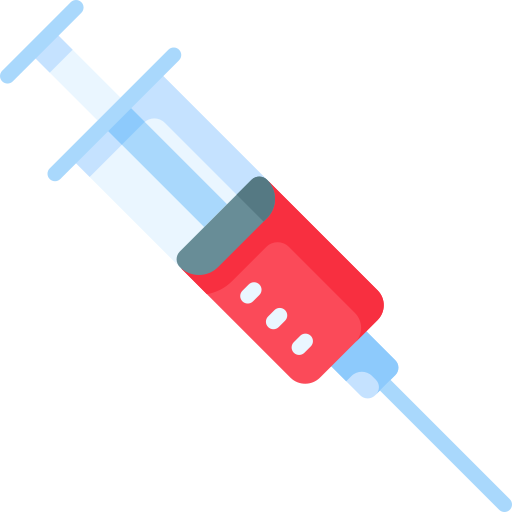
Adrenaline
1 mg/ml
Incepta Pharmaceuticals Ltd.
Product Details
Description
The actions of epinephrine resemble the effects of stimulation of adrenergic nerves. It acts on both alpha and beta receptor sites of sympathetic effector cells. Its most prominent actions are on the beta receptors of the heart, vascular and other smooth muscle. When given by rapid intravenous injection, it produces a rapid rise in blood pressure, mainly systolic, by (1) direct stimulation of cardiac muscle which increases the strength of ventricular contraction, (2) increasing the heart rate and (3) constriction of the arterioles in the skin, mucosa and splanchnic areas of the circulation. When given by slow intravenous injection, epinephrine usually produces only a moderate rise in systolic and a fall in diastolic pressure. Although some increase in pulse pressure occurs, there is usually no great elevation in mean blood pressure. Accordingly, the compensatory reflex mechanisms that come into play with a pronounced increase in blood pressure do not antagonize the direct cardiac actions of epinephrine as much as with catecholamines that have a predominant action on alpha receptors.
Adjunctive use in the management of cardiac arrest. It is used in cardiopulmonary resuscitation. Intracardiac puncture and intramyocardial injection of adrenaline may be effective when external cardiac compression and attempts to restore the circulation by electrical defibrillation or use of a pacemaker fail. Adrenaline is a drug that leads to increased blood pressure, increased heart rate, increased air entry, increased blood glucose, stimulates cardiac activity and reduces allergic reactions by reducing inflammatory response caused by histamine. Due to these properties, it is used for the treatment of allergic and anaphylactic reactions. Adrenaline is the favored treatment for anaphylactic shock and should be administered immediately if a person begins exhibiting severe allergic reactions. Adrenaline is also used in life threatening asthma when failing ventilation and continued deterioration despite nebulizer therapy.
Hypertension, arteriosclerosis, coronary disease and hyperthyroidism. Not to be given to patients taking monoamine oxidase inhibitors.
Common side effects are anxiety, restlessness, dizziness, headache, palpitations, rapid pulse, tremors, weakness and coldness of the extremities may be reported even with small doses and especially when given in conjunction with local anaesthetics.
Pregnancy Category C. It crosses the placenta and is excreted in breast milk. Adrenaline should only be used in pregnancy if the potential benefits outweigh the risks to the fetus. It is excreted in breast milk and therefore Adrenaline is not recommended for use during lactation because of the risk of adverse effects of infants.
The solution should not be used if it is pinkish or darker than slightly yellow or if it contains a precipitate. Adrenaline is readily destroyed by alkalies and oxidizing agents. In the latter category are Oxygen, Chlorine, Iodine, Permanganates, Chromates, Nitrites and salts of easily reducible metals, especially Iron. Adrenaline should not be mixed with Sodium bicarbonate; the solution is oxidised to adrenochrome and then forms polymers. Administer slowly with caution to elderly patients and to patients with ischemic heart disease, hypertension, diabetes mellitus, hyperthyroidism or psychoneurosis. Use with extreme caution in patients with long-standing bronchial asthma and emphysema who have developed degenerative heart disease. Anginal pain may be induced when coronary insufficiency is present.
Cardiac arrhythmia leading to ventricular fibrillation, severe hypertension leading to pulmonary edema and cerebral hemorrhage. Combined alpha and beta-adrenergic blocking agents such as Labetalol may counteract the effects of adrenaline, or a beta-blocking agent may be used to treat any supraventricular arrhythmias and Phentolamine to control the alpha-mediated effects on the peripheral circulation. Rapidly acting vasodilators such as nitrates and Sodium Nitroprusside may also be helpful. Immediate resuscitation support must be available.
Anaphylaxis, Mydriatic and Cycloplegic agents, Other adrenoceptor stimulants, Respiratory stimulants: analeptics
Store below 25°C. Protect from light. Keep out of the reach of children.
-
Support 24/7
Call us anytime -
100% Safety
Only secure payments